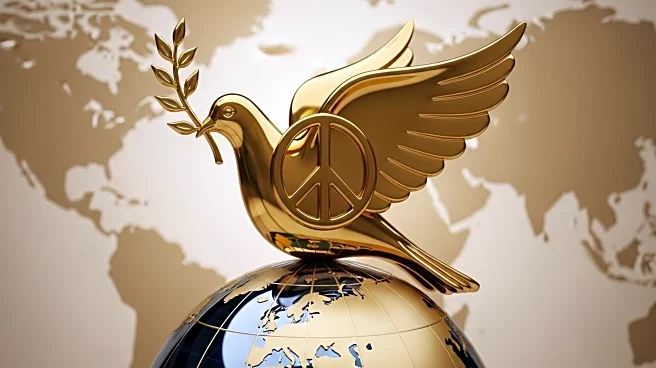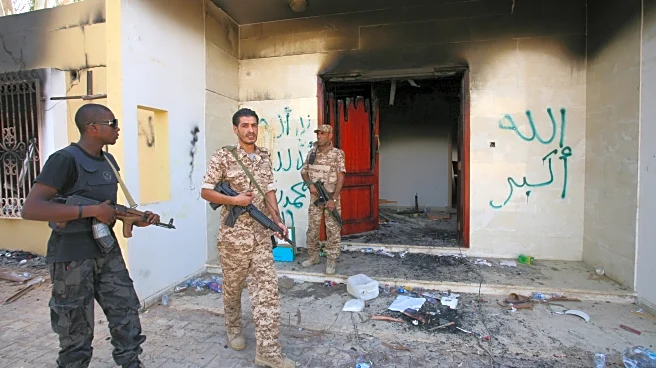What's Happening?
President Trump has been promoting his administration's achievements in brokering peace agreements and ceasefires globally, despite ongoing challenges in Ukraine. Trump has claimed credit for stopping multiple wars, including a ceasefire between India and Pakistan, which involved nuclear-armed nations. While some experts acknowledge Trump's role in reducing tensions in certain regions, others argue that the administration's influence is overstated. Critics point out that some conflicts remain unresolved, and the peace agreements are fragile. Trump's efforts have been highlighted by his team as part of a campaign for the Nobel Peace Prize, with his chief envoy, Steve Witkoff, advocating for his recognition.
Why It's Important?
The significance of President Trump's peace initiatives lies in their potential impact on international relations and U.S. foreign policy. Successful peace agreements can enhance the U.S.'s diplomatic standing and contribute to global stability. However, the criticism of Trump's approach underscores the complexities of international diplomacy, where announcements of peace do not always translate into lasting resolutions. The administration's focus on claiming credit for peace efforts may influence public perception and political discourse, affecting Trump's legacy and future diplomatic strategies.
What's Next?
The continuation of President Trump's peace efforts will likely involve navigating diplomatic challenges and maintaining pressure on conflicting parties to uphold agreements. The administration may face scrutiny over its ability to deliver tangible results and sustain peace in volatile regions. Stakeholders, including international organizations and foreign governments, may respond to Trump's initiatives with varying degrees of support or skepticism, influencing the trajectory of U.S. foreign policy.
Beyond the Headlines
The ethical dimension of President Trump's peace efforts involves balancing the desire for recognition with the practicalities of achieving lasting peace. The administration's approach raises questions about the prioritization of diplomatic achievements over substantive conflict resolution. Long-term implications may include shifts in how the U.S. engages with global conflicts and the role of diplomacy in addressing complex international issues.










